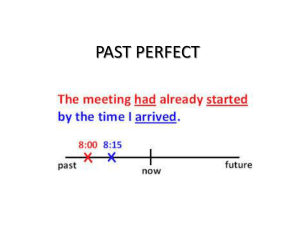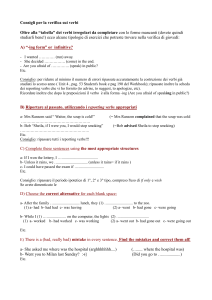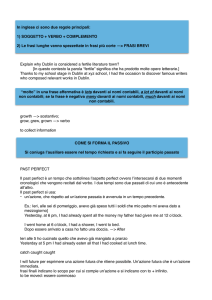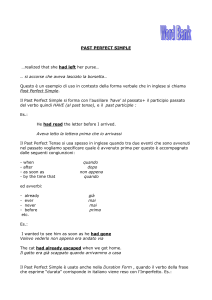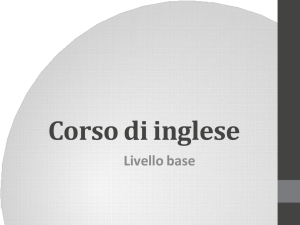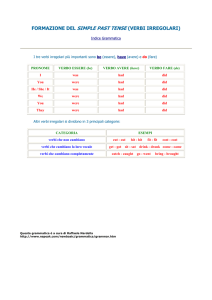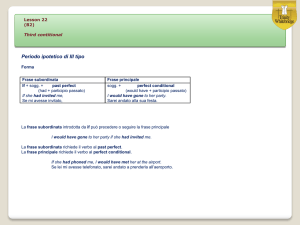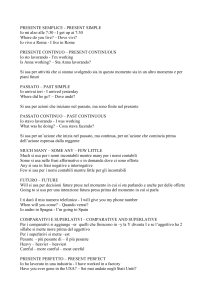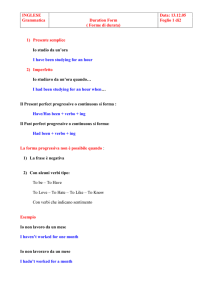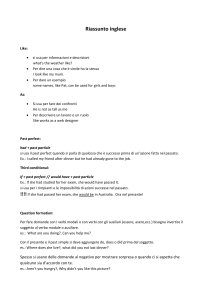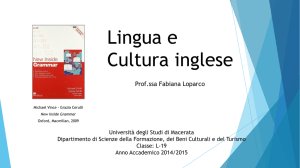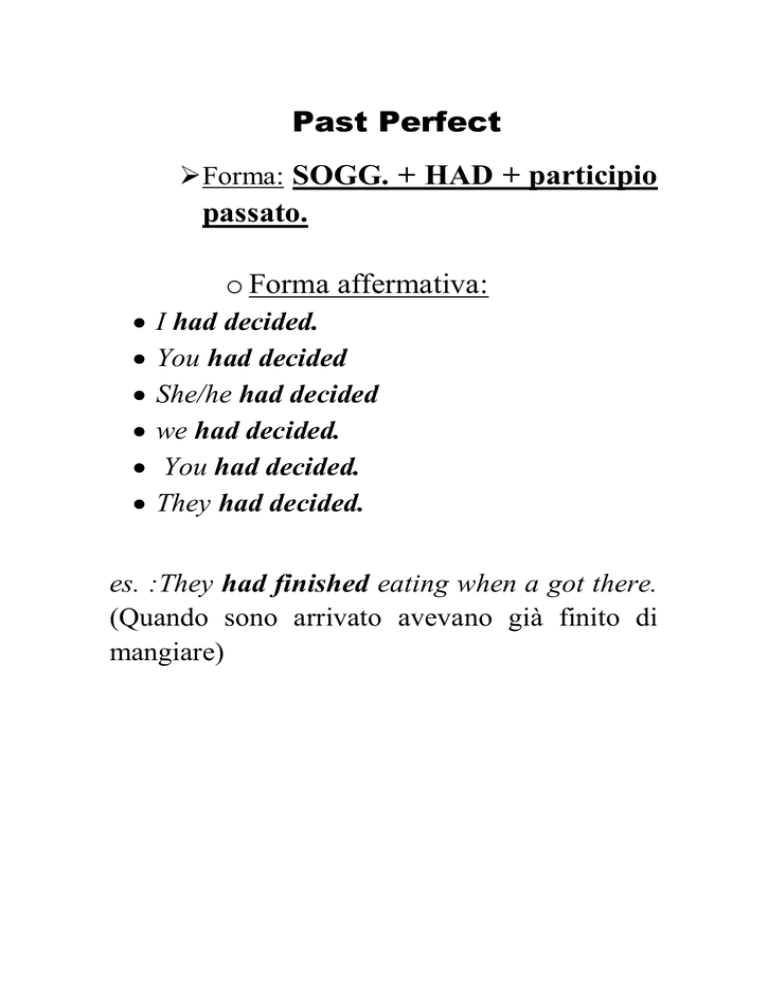
Past Perfect
Forma: SOGG. + HAD + participio
passato.
o Forma affermativa:
I had decided.
You had decided
She/he had decided
we had decided.
You had decided.
They had decided.
es. :They had finished eating when a got there.
(Quando sono arrivato avevano già finito di
mangiare)
o Forma negativa:
o Forma: SOGG. + HAD + NOT
+ participio passato.
I had not (hadn’t) decided.
You had not (hadn’t) decided
She/he had not (hadn’t) decided
we had not (hadn’t) decided.
You had not (hadn’t) decided.
they had not (hadn’t) decided.
They had not (hadn’t) finished eating when a
got there. (Quando sono arrivato non avevano
ancora finito di mangiare)
o Forma interrogativa (yes/no):
o Forma: HAD + SOGG.+
participio passato.
Had I decided?
Had you decided?
Had he/she decided?
Had we decided?
Had you decided?
Had they decided?
Es.: Had you already decided to leave? (avevi
già deciso di partire?)
o Forma interrogativa (Wh-):
o WH- + HAD + SOGG.+
participio passato.
Why had I decided?
Why had you decided?
Why had he/she decided?
Why had we decided?
Why had you decided?
Why had they decided?
Es.: Why had you decided to leave?
(Perché avevi deciso di partire?)
Past Perfect: significato
Si impiega fondamentalmente per esprimere
un’ azione anteriore rispetto a un punto di
osservazione già collocato nel passato; Il Past
Perfect corrisponde al trapassato italiano
[prossimo o remoto] (avevo/ebbi deciso, era/fu
partita):
Jane left at 7.00. We arrived at her house at
8:30.
(Jane uscì alle 7.oo. Noi arrivammo a casa sua alle 8.30).
When we arrived at Jane’s house, she had
(already) left.
(Quando arrivammo a casa di Jane, lei era già uscita)
Tuttavia non sempre è necessario il Past
Perfect se si usa before o after per chiarire
la successione dei tempi:
Jane left her house before we arrived.
(Jane uscì di casa prima che noi arrivassimo)
Jane had left her house before we arrived.
(Jane era uscita […] prima che noi arrivassimo)
Past Perfect: usi più comuni
1. ) Dopo il verbo realize (accorgersi/rendersi
conto):
When I got home I realized I had lost my
wallet.
(Quando giunsi a casa mi accorsi di aver perso il
portafogli)
[letteralmente: … che avevo perso …]
2. ) Con i verbi “of saying and thinking”
[verbi d’opinione] (think, know, be sure,
say, remember, understand, ecc), per
parlare di cose successe prima che una
determinata opinione venga espressa:
I thought I had (I’d) seen the film before,
but I hadn’t.
(Pensavo di aver già visto quel film, ma mi sbagliavo)
[letteralmente: Pensavo che avevo visto]
David knew he had seen her somewhere
before)
(David sapeva di averla già vista in qualche posto)
[letteralmente … sapeva che l’aveva già vista]
Ellen was sure that she hadn’t locked the
door.
(Ellen era sicura di non aver chiuso a chiave la porta)
[letteralmente: … era sicura che non aveva chiuso]
The inspector suspected that the thief had
used a special key.
(L’ispettore sospettava che il ladro avesse usato [aveva
usato] una chiave speciale)
Antonio Piga

